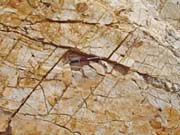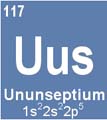


 The Earth Sciences Division is hosting the next installment of its Distinguished Scientist Seminar Series on Friday, with a talk by Mark Zoback of Stanford University. He’ll discuss “A Strategy for Enhanced Recovery and Carbon Sequestration in Gas Shales” at 10:30 a.m. in the Building 50 Auditorium. “As an abundant and inexpensive alternative to coal for generating electricity and its potential use for transportation, enhanced use of shale gas significantly alters the energy/climate mix,” says Zoback.
The Earth Sciences Division is hosting the next installment of its Distinguished Scientist Seminar Series on Friday, with a talk by Mark Zoback of Stanford University. He’ll discuss “A Strategy for Enhanced Recovery and Carbon Sequestration in Gas Shales” at 10:30 a.m. in the Building 50 Auditorium. “As an abundant and inexpensive alternative to coal for generating electricity and its potential use for transportation, enhanced use of shale gas significantly alters the energy/climate mix,” says Zoback.
 German Chancellor Angela Merkel will visit Berkeley Lab on Thursday to meet with scientists and tour some of the Lab's research facilities. Merkel, 55, earned a doctorate in physics and worked as a chemist at a scientific academy in East Berlin before becoming Germany's first female chancellor in 2005. Later on Thursday, Merkel will deliver a speech on science and technology at Stanford. One of the highlights of the Chancellor's visit, weather permitting, will be a photo session with the more than 100 German staff scientists and postdocs now working at Berkeley Lab. Temporary road closures will be in effect on Thursday. Details will be announced later this week.
German Chancellor Angela Merkel will visit Berkeley Lab on Thursday to meet with scientists and tour some of the Lab's research facilities. Merkel, 55, earned a doctorate in physics and worked as a chemist at a scientific academy in East Berlin before becoming Germany's first female chancellor in 2005. Later on Thursday, Merkel will deliver a speech on science and technology at Stanford. One of the highlights of the Chancellor's visit, weather permitting, will be a photo session with the more than 100 German staff scientists and postdocs now working at Berkeley Lab. Temporary road closures will be in effect on Thursday. Details will be announced later this week.
 Tomorrow, the Glenn T. Seaborg Center of the Chemical Sciences Division (CSD) will host a reception at 3:30 p.m., followed by the inaugural Pat Durbin Memorial Lecture in Building 66 Auditorium at 4 p.m. Pat Durbin, who passed away in 2009, had a long history at Berkeley Lab and is best known for her seminal work in medical aspects of radiation protection. Ken Raymond (CSD) will briefly describe Durbin's life and work, then Ray Guilmette of the Lovelace Respiratory Research Institute will present a talk, “It’s All About the Dose: A History of Internal Dosimetry Research.”
Tomorrow, the Glenn T. Seaborg Center of the Chemical Sciences Division (CSD) will host a reception at 3:30 p.m., followed by the inaugural Pat Durbin Memorial Lecture in Building 66 Auditorium at 4 p.m. Pat Durbin, who passed away in 2009, had a long history at Berkeley Lab and is best known for her seminal work in medical aspects of radiation protection. Ken Raymond (CSD) will briefly describe Durbin's life and work, then Ray Guilmette of the Lovelace Respiratory Research Institute will present a talk, “It’s All About the Dose: A History of Internal Dosimetry Research.”
 To help celebrate Earth Day, the Lab’s Zimride ride-sharing service is offering employees who sign up for the program before April 22 a chance to win a $50 Target gift card. Those who register will be automatically entered into the drawing. Zimride is an online service that enables commuters to find or provide rides to various destinations. Employees can use the service to catch a ride with colleagues or provide a seat in their own car. Riders split the cost with those who drive. Ridesharing not only lessens the negative impact on the environment but also helps ease the limited parking available at the Lab.
To help celebrate Earth Day, the Lab’s Zimride ride-sharing service is offering employees who sign up for the program before April 22 a chance to win a $50 Target gift card. Those who register will be automatically entered into the drawing. Zimride is an online service that enables commuters to find or provide rides to various destinations. Employees can use the service to catch a ride with colleagues or provide a seat in their own car. Riders split the cost with those who drive. Ridesharing not only lessens the negative impact on the environment but also helps ease the limited parking available at the Lab.
 [San Francisco Chronicle] A new addition to the strange world of superheavy chemical elements has been created by Russian and American scientists, including a group of basic researchers at Livermore Lab. The element is called element 117, and only six precious atoms of it have emerged from an atom smasher in Russia. Berkeley Lab has produced a dozen superheavy elements called transuranics and bear such names as berkelium, californium, lawrencium and seaborgium. The new element will eventually be given a formal name, but, for now, the scientists are calling it ununseptium, a bit of word play on the No. 117. More>
[San Francisco Chronicle] A new addition to the strange world of superheavy chemical elements has been created by Russian and American scientists, including a group of basic researchers at Livermore Lab. The element is called element 117, and only six precious atoms of it have emerged from an atom smasher in Russia. Berkeley Lab has produced a dozen superheavy elements called transuranics and bear such names as berkelium, californium, lawrencium and seaborgium. The new element will eventually be given a formal name, but, for now, the scientists are calling it ununseptium, a bit of word play on the No. 117. More>
 The Non-Construction Safety Assurance Program will begin piloting an online Subcontractor Job Hazards Analysis and Work Authorization (SJHAWA) form and database today in the Physical Biosciences, Life Sciences, and EH&S Divisions, as well as the Joint Genome Institute and the Advanced Light Source. Requesters of non-construction subcontractor services and requisition preparers in those five divisions should use the online guidance for this pilot program or talk to their Division Safety Coordinator regarding the use of the new online form. The program will run for two months, and after the lessons learned have been incorporated, the online SJHAWA will be implemented across all divisions at the Lab.
The Non-Construction Safety Assurance Program will begin piloting an online Subcontractor Job Hazards Analysis and Work Authorization (SJHAWA) form and database today in the Physical Biosciences, Life Sciences, and EH&S Divisions, as well as the Joint Genome Institute and the Advanced Light Source. Requesters of non-construction subcontractor services and requisition preparers in those five divisions should use the online guidance for this pilot program or talk to their Division Safety Coordinator regarding the use of the new online form. The program will run for two months, and after the lessons learned have been incorporated, the online SJHAWA will be implemented across all divisions at the Lab.
Today at Berkeley Lab encourages comments, suggestions, and story ideas. Please send them here.
TABL is produced by Public Affairs' Communications Group